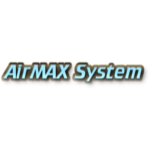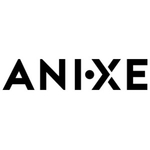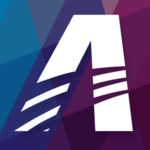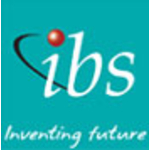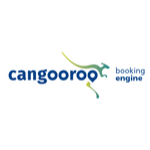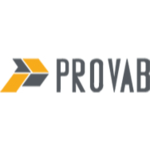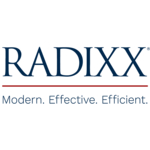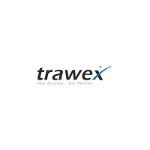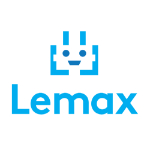TechnologyCounter provides genuine, unbiased real user reviews to help buyers make informed decisions. We may earn a referral fee when you purchase through our links, at no extra cost to you.
List of Best Airline Reservation System
Showing 1 - 14 of 14 productsAirMAX System is an innovative software designed to revolutionize your network performance. With its state-of-the-art technology and user-friendly interface, AirMAX provides seamless connectivity, improved efficiency, and optimized network management...Read AirMAX System Reviews
Resfinity is a next generation travel management software that streamlines the booking process for travel agents. With its advanced technology and user-friendly interface, Resfinity helps travel agents book flights, accommodation, and car rentals eff...Read Resfinity Reviews
AeroCRS is a solution for airlines looking to streamline their operations, increase efficiency, and improve customer satisfaction. Designed with the latest technology and user-friendly features, AeroCRS simplifies and enhances the booking, reservatio...Read AeroCRS Reviews
iFly Res is a booking software for the aviation industry. Streamline your operations with our innovative and user-friendly platform that allows for seamless booking, management of reservations, is a ticketing services. Perfect for airlines, tour oper...Read iFly Res Reviews
Cangooroo Booking Engine, is a solution for hassle-free travel booking. Designed with user-friendly features technology, Cangooroo offers a seamless booking experience for both travellers and businesses. From flights and accommodations to activities...Read Cangooroo Booking Engine Reviews
Provab Technosoft is a leading software company that specializes in providing innovative technology solutions. With a team of highly skilled professionals and a strong focus on customer satisfaction, Provab Technosoft has been serving clients from va...Read PROVAB TECHNOSOFT Reviews
Radixx Galaxy, an innovative software designed to take your business to new heights. With its state-of-the-art technology and user-friendly interface, Radixx Galaxy streamlines operations, enhances customer experience, and boosts revenue for business...Read Radixx Galaxy Reviews
Travelopro is a leading provider of comprehensive travel technology solutions for global travel agencies, tour operators, and travel management companies. With a strong focus on innovation and efficiency, our software is designed to streamline and si...Read Travelopro Reviews
Trawex Cloud is a solution for all your travel management needs. Seamlessly manage bookings, payments, and data with Trawex Clouds innovative and user-friendly platform. Streamline your travel operations and elevate your business to new heights with...Read Trawex Cloud Reviews
TravelTECH IRS is your ultimate solution for all your travel management needs. This innovative software is designed to streamline your travel process, maximize efficiency, and enhance your overall experience. With TravelTECH IRS, you can say goodbye...Read TravelTECH IRS Reviews
Lemax is the leading software solution for all your business needs. Our advanced platform offers a wide range of features designed to streamline and improve your daily operations. With Lemax, you can efficiently manage your bookings, finances, and cu...Read Lemax Reviews
Results Reservation is a software that streamlines the reservation process for businesses. Say goodbye to manual booking systems and hello to effortless efficiency. With Results Reservation, expect a seamless experience for both customers and compani...Read Results Reservation Reviews
SkyVantage is a software designed to revolutionize the way businesses operate. With its advanced features and user-friendly interface, SkyVantage streamlines workflows and maximizes efficiency for businesses of all sizes. Say goodbye to tedious manua...Read SkyVantage Reviews
Videcom VRS is a world-renowned software that has revolutionized the way businesses communicate and collaborate. With its advanced technology and seamless features, Videcom VRS allows users to connect and interact effortlessly, regardless of their ph...Read Videcom VRS Reviews
- What Is Airline Reservation System?
- Top Reasons Why Businesses Need Airline Reservation System?
- What Are the Top Key Features of Airline Reservation System?
- What Are the Top Benefits of Airline Reservation System?
- What Are the Steps to Choose the Right Airline Reservation System?
- What Are the Types of Airline Reservation System for Different Industries?
- What Are the Technology Trends for Best Airline Reservation System?
- What Are the Deployment Options for Airline Reservation System?
What Is Airline Reservation System?
The Airline Reservation System is an internet-based platform that facilitates the process of reserving and purchasing airplane tickets for travelers. The software in question serves as a tool for airlines to effectively manage their operational activities, with a particular focus on passenger booking processes.
The system is designed to hold a variety of data, including flight schedules, rates, and availability. This enables users to conveniently search for and acquire tickets. Additionally, flight booking system enables consumers to perform check-in procedures and monitor the status of their flights.
The integration of the airline reservation software with various airlines facilitates the process of ticket acquisition for customers, enabling them to identify and select the most optimal options for their travel itineraries. The airline ticket reservation system facilitates the connection between clients and several airlines, enabling them to conveniently compare fares and destinations.
Additionally, the airline ticketing system offers consumers a variety of payment methods and facilitates automated reimbursement. Furthermore, patrons have the ability to utilize airline reservation software for the purpose of effectively overseeing their frequent flyer reward programs, as well as obtaining advantageous price reductions.
The system moreover maintains a comprehensive record of clients' information, encompassing their names, contact details, and promotional offerings. The customer has the potential to receive updates in the event that a more cost-effective option becomes accessible.
The technology is utilized for the reservation of both domestic and international flights. The application serves as an effective means for customers to save both time and money during their search for flights.
Top Reasons Why Businesses Need Airline Reservation System?
1. In order to optimize the efficiency of the airline reservation process and mitigate expenses related to manual bookings.
2. In order to effectively handle intricate airline schedules, instances of overbooking, and cancellations.
3. The primary objective of the airline ticketing system is to monitor the real-time availability of tickets and facilitate consumers in making flight reservations based on their preferences.
4. In order to enhance revenue generation, it is imperative to focus on client targeting through strategic planning campaigns and initiatives aimed at promoting upselling opportunities.
5. In order to facilitate the evaluation of various airlines and fares for the purpose of selecting the most economically advantageous alternative, businesses are provided with the means to make comparisons.
6. The primary objective of the airline ticket reservation system is to enhance customer service by facilitating online functionalities for consumers to modify, cancel, and complete check-in procedures for their reservations.
7. In order to ensure consumers are kept well-informed about any modifications to their flight itinerary and the check-in process, automated alerts are implemented.
8. The objective is to offer organizations analytical and reporting instruments that can facilitate the identification of patterns and forecast future demand.
9. The objective is to offer travel agents up-to-date tools and resources in order to enhance their ability to cater to the demands of their consumers.
10. In order to offer customers a comprehensive range of payment alternatives, it is imperative to ensure the availability of various options such as credit card processing, PayPal, and gift cards.
11. In order to facilitate the integration of airline reservation systems with other apps, hence ensuring a seamless client experience, enterprises are granted the capability to do so.
12. In order to facilitate the customization of features and the generation of custom reports for enterprises.
13. The objective is to offer businesses a centralized flight booking system that enables them to efficiently oversee all aspects of the airline reservation software from a single location.
14. In order to enhance customer service, it is imperative to employ solutions that facilitate improved client interaction and effective management of consumer complaints.
15. In order to streamline administrative processes related to manual bookings and enhance the convenience of customers in accessing their travel management over the Internet, measures have been taken to minimize paperwork and facilitate online inspection of flight details.
What Are the Top Key Features of Airline Reservation System?
Top Key Features of Airline Reservation Systems:
1. Database Management: The capacity to retain consumer data, previous flight records, ticketing details, and other pertinent information.
2. Scheduling: The airline ticketing system application offers users the capability to generate and manage flight schedules with a high degree of precision and effectiveness.
3. Online Booking: The airline ticket reservation system enables clients to efficiently and conveniently make flight reservations through an Internet platform.
4. Payment Processing: The flight booking system enables the execution of safe transactions for the acquisition of tickets.
5. Seat Management: The capacity to effectively oversee the arrangement and accessibility of seating arrangements throughout air travel.
6. Pricing Tracking: The capacity to monitor the pricing of airline tickets and implement corresponding modifications.
7. Loyalty Programs: The capacity to develop customer loyalty programs and incentives.
8. Fare Management: The capacity to effectively regulate and administer fare arrangements.
9. Reporting: The capacity to produce a variety of reports for the purpose of analyzing flight data.
10. API Integration: Enables the integration of third-party entities with pre-existing systems.
What Are the Top Benefits of Airline Reservation System?
1. Automation of bookings: The airline reservation system facilitates expedient and effective bookings, operating continuously throughout the day and night. The implementation of airline booking system offers a time-saving and efficient solution for clients, eliminating the need for physical presence in lengthy queues at airline counters.
2. Reduction of costs: The implementation of automation in the process leads to a reduction in costs related to staff employment, the production of aircraft tickets, and the handling of paperwork.
3. Accurate availability and scheduling information: The airline reservation software offers current and accurate data regarding flight availability and timetables. This measure aids in the prevention of problems or misunderstandings that may arise between consumers and airline personnel.
4. Seamless integration with other systems: The integration of the airline ticketing system with pre-existing ticketing systems, partner airlines, and loyalty programs facilitates the streamlined process of travel booking and management.
5. Improved customer experience: The airline reservation system serves to enhance and optimize the process of reserving flights for customers, hence facilitating a more efficient and expedited experience in both reservation and flight management.
6. Enhanced security: The airline ticketing system provides heightened security measures to mitigate ticket fraud and protect the integrity of data.
7. Integrated marketing channel: The airline reservation system serves as a platform for the marketing and promotion of airline packages and discounts, thereby contributing to the enhancement of revenue generation and consumer satisfaction.
What Are the Steps to Choose the Right Airline Reservation System?
1. Research existing airline reservation systems and their features: Prior to making a commitment to an airline ticketing system, it is crucial to have a comprehensive understanding of the diverse range of options that are accessible, as well as the specific characteristics that each option provides.
Understanding the capabilities of each flight booking system and assessing their suitability for meeting one's requirements is of paramount significance.
2. Determine your requirements for the system: Understanding the essential attributes and functionalities required in an airline reservation system holds significant importance.
When evaluating an airline, it is important to take into account many factors such as the airline's size, operational locations, passenger volume, payment options, services provided, and any other pertinent criteria.
3. Analyze the data you need to collect: The consideration of specific information pertaining to passenger tracking, flight management, and customer data should be taken into account while selecting a reservation system.
This paper aims to conduct an analysis of the storage, retrieval, and reporting capabilities exhibited by various systems, with the ultimate goal of determining the most suitable type for a given context.
4. Compare the costs: Acquire knowledge of the cost of different airline booking systems. It is essential to consider both the initial and recurring expenses associated with software, training, and upgrades.
5. Consider customer service features: It is imperative to not solely focus on technological attributes, but rather take into account customer service attributes, such as user-friendly interfaces and assistance functionalities.
6. Test the system before purchase: Prior to making a commitment to any reservation system, it is imperative to ensure that either you or a designated representative is able to do a thorough evaluation of the system to ascertain its suitability in meeting your specific requirements.
7. Evaluate preferences: Upon doing the necessary tests on the airline ticket reservation system, it is vital to engage in a comprehensive evaluation through a side-by-side comparison, taking into account individual preferences. Select the flight reservation system that best aligns with your requirements and in which you feel at ease utilizing.
What Are the Types of Airline Reservation System for Different Industries?
. There are four main types of airline reservation systems for different industries:
1. Full-Service Reservation Systems: This particular approach is employed by major airlines and is commonly observed within the travel sector. The airline booking system provides users with a comprehensive solution, encompassing price checking, flight booking, seat assignment management, and many functionalities.
2. Low-Cost Carrier Reservation Systems: Budget carriers, such as Southwest carriers and Ryanair, employ this particular technique. The airline ticketing system enables clients to locate affordable alternatives and provides a range of booking functionalities to streamline travel management.
3. Advance In-Flight Reservation Systems: Airlines employ flight booking system to effectively oversee in-flight amenities, including food and beverage services, as well as entertainment options. This feature enables consumers to make advance reservations for their favorite seating and meals.
4. Charter Reservation Systems: This particular technique is commonly employed by charter airlines and provides consumers with the opportunity to make flight reservations in a personalized manner. The flight reservation system enables consumers to select their desired dates, times, and destinations for travel.
What Are the Technology Trends for Best Airline Reservation System?
The primary areas of attention for technology advances in the realm of airline reservation systems should revolve around enhancing customer service, cost reduction, and leveraging novel technical advancements to elevate the overall consumer experience.
Regarding customer service, airlines are progressively prioritizing the provision of consumer self-service alternatives, such as mobile applications and online check-in. The airline booking system enables consumers to conveniently access customized flight information, make ticket reservations, and efficiently manage their travel arrangements without the need for help from an airline representative.
Airlines are progressively allocating more resources towards the implementation of automation in several aspects of the airline ticket reservation system, mostly driven by economic considerations. The implementation of automation has the potential to decrease the duration and exertion involved in handling reservations, and may also contribute to a decrease in ticket expenses.
In recent times, airlines have begun to leverage novel technical advancements, like machine-learning algorithms and artificial intelligence, in order to make informed judgments based on data and provide tailored customer care experiences.
The flight booking system have shown to be particularly valuable in comprehending client behavior and preferences, hence facilitating enhancements in the overall customer experience.
What Are the Deployment Options for Airline Reservation System?
The available deployment alternatives for an airline reservation system encompass on-premise, hosted, and cloud-based options.
1. On-premise flight ticket booking system refer to the infrastructure and software solutions that are housed within an organization's dedicated data center, wherein the management and maintenance responsibilities are undertaken internally.
2. Hosted airline ticketing system refer to web-based systems that are overseen by a third-party provider, necessitating the business to possess internet connectivity in order to utilize the system.
3. Cloud-based airline booking systems refer to technological infrastructures that are fully hosted in remote locations and overseen by a third-party entity known as a cloud service provider.
